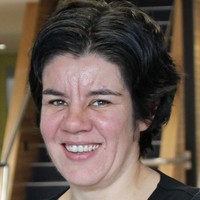Susan Edwards
Australian Catholic University, Learning Sciences Institute Australia, Department Member
- Susan Edwards is Professor of Education in the Learning Sciences Institute of Australia (LSIA), Australian Catholic U... moreSusan Edwards is Professor of Education in the Learning Sciences Institute of Australia (LSIA), Australian Catholic University, where she currently directs the Early Childhood Futures research program. Her research investigates the role of play-based learning in the early childhood curriculum for the 21st century. Professor Edwards has completed work as a Chief Investigator on two Australian Research Council Discovery Grants. The first examining play-based learning in early childhood education settings, and the second the role of play-based learning in wellbeing and sustainability education. She is currently the lead Chief Investigator on an Australian Research Council Discovery Grant on digital play. Susan has over 70 publications in peer reviewed journals, and has published several books with publishers including Cambridge University Press, McMillan and Open University Press. Her most recent book is due for publication in 2018 and titled Young Children’s Play and Learning in the Digital Age (co-authored with Christine Stephen, University of Stirling). Professor Edwards is the immediate past co-editor of the Asia Pacific Journal of Teacher Education and is currently on the editorial board for three journals (Early Years: International Journal of Research and Practice; Journal of Early Childhood Research; Australasian Journal of Early Childhood). Professor Edwards is also a winner of several awards for teaching excellence in the tertiary education sector, including a prestigious Australian Learning and Teaching Council award in 2009.edit
Research Interests:
Research Interests:
Research Interests:
Research Interests:
... Student engagement; Student well-being. Researchers: Alex Neill; Ally Bull; Ben Gardiner; Cathy Wylie; Charles Darr; Chris Joyce; Helen Potter; Jacky Burgon; Jane Gilbert; Jennifer Garvey Berger; Jenny Whatman; Jessica Hutchings; ...
Research Interests:
ABSTRACT
Research Interests:
This article considers the impact of the ‘transfer problem’ from a personal perspective. Drawing on experiences in teacher educator as preservice teacher, a practicing educator and later a preservice educator the author examines how she... more
This article considers the impact of the ‘transfer problem’ from a personal perspective. Drawing on experiences in teacher educator as preservice teacher, a practicing educator and later a preservice educator the author examines how she has seen and experienced the transfer problem and the potential for teacher education to enact a separation between theory and practice. The convergence of technology
Research Interests:
... The social constructionist movement in modern psychology. American Psychologist, 40 (3), 266-275. ... New, R.(1998). Theory and praxis in Reggio Emilia: they know what they are doing and why. ... Rose, N.(1999). Powers of freedom:... more
... The social constructionist movement in modern psychology. American Psychologist, 40 (3), 266-275. ... New, R.(1998). Theory and praxis in Reggio Emilia: they know what they are doing and why. ... Rose, N.(1999). Powers of freedom: reframing political thought. ...
... Suzy Edwards. Monash University. ... As Johnson, LaMontagne, Elgas & Bauer (1998) explain "although Piaget and Vygotsky differed somewhat in their perspectives and interpretations, they both suggested... more
... Suzy Edwards. Monash University. ... As Johnson, LaMontagne, Elgas & Bauer (1998) explain "although Piaget and Vygotsky differed somewhat in their perspectives and interpretations, they both suggested that play was linked to thought and representational skills" . ...
